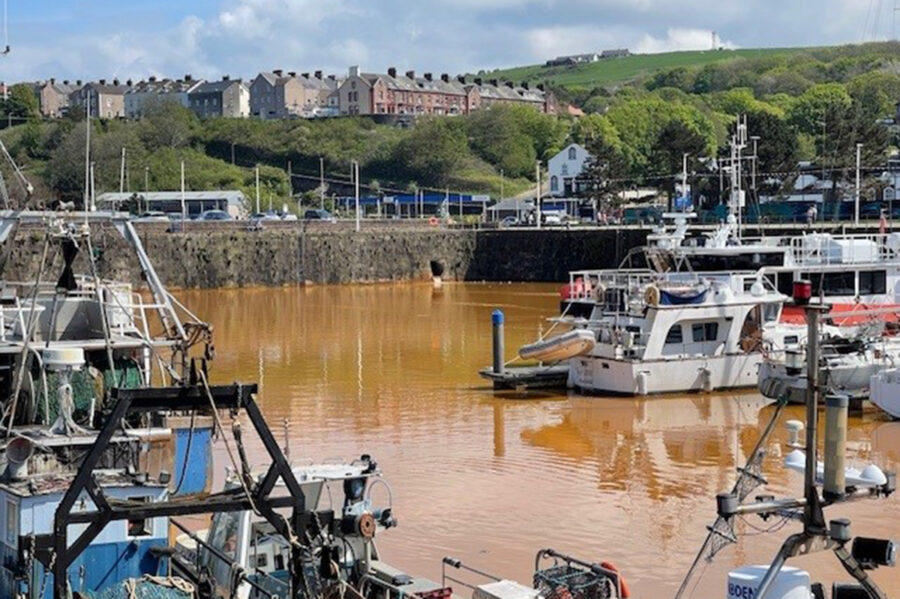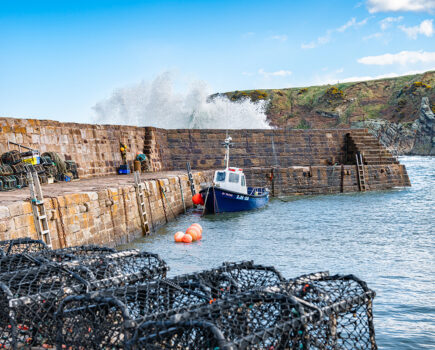Whitehaven fishermen are asking FN readers with good memories for information about the run-off pollution from the Dalquarran coal mine that was recorded in Girvan on the Clyde from 1979 to 1982. It was eventually rectified when the National Coal Board (NCB) installed a mine water treatment plant near the outflow. Vessel owners have reiterated their concerns about pollution of Whitehaven harbour from run-off from abandoned coal mines. The run-off enters the harbour from the Bransty Beck culvert, which runs directly into the Queen’s Dock, where the remaining commercial fishing vessels tie up.
One vessel owner, who wishes to remain anonymous, told FN: “We remember a similar incident of pollution from old coal mines entering the Clyde from the river Girvan, back before the millennium. At the time, there was talk about the run-off damaging the hulls of vessels, as well as killing off any wildlife in the harbours there. We’re obviously concerned that we are going to see similar long-term damage if this situation continues.”
The run-off has already, it is thought, killed off the wildlife in the harbour. Professor Harvey Wood of the Clean Rivers Trust, who has taken water samples from the harbour, said that he wasn’t sure whether vessel damage was a possibility, although it was clear that some hulls were already being discoloured.
“The water as it comes into the railway tunnel is acidic (pH 3.7). The stream water itself is pH 7.3 and the mix entering the harbour is pH 5.5.
“The main contaminants are iron 142mg/l, magnesium 178mg/l and sulphur 2220mg/l (hence the acidity). The muds on the floor of the harbour are now coated with iron hydroxide, and any life within the bed of silts will have been wiped out. The plume of ochre water extends beyond the harbour now out into the Solway Firth and Irish Sea, depending on tide and wind.”
A number of meetings between vessel owners, Whitehaven Harbour Commissioners and Whitehaven Marina Ltd have failed to find a solution. The discussions have extended to include the Environment Agency, Cumberland Council, the NCB and others, though the historic nature of the pollution means it is likely that no party is legally liable.
“We don’t seem to be any nearer a solution to the issue, despite constructive approaches to this from the Harbour Commissioners and the marina. Meantime, we have concerns about longer-term damage to the vessels here – and there are a lot of pleasure craft in the marina too,” said the vessel owner who contacted FN.
“Any input from readers who may have been impacted by the Clyde pollution in the 1990s would be really helpful for us
as we push for a solution to the problem.”
If you have any information that might help, drop us a line at: fishingnews.ed@kelsey.co.uk or on WhatsApp: +44 77 4141 3966.
This story was taken from the latest issue of Fishing News. For more up-to-date and in-depth reports on the UK and Irish commercial fishing sector, subscribe to Fishing News here or buy the latest single issue for just £3.30 here.
Sign up to Fishing News’ FREE e-newsletter here.








